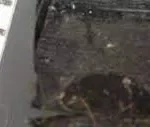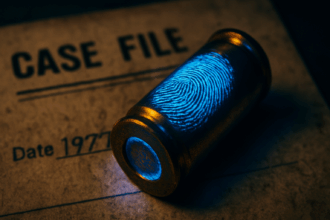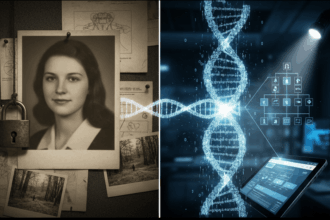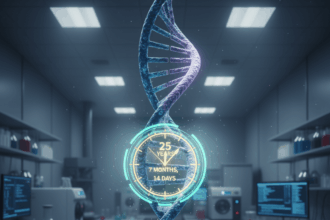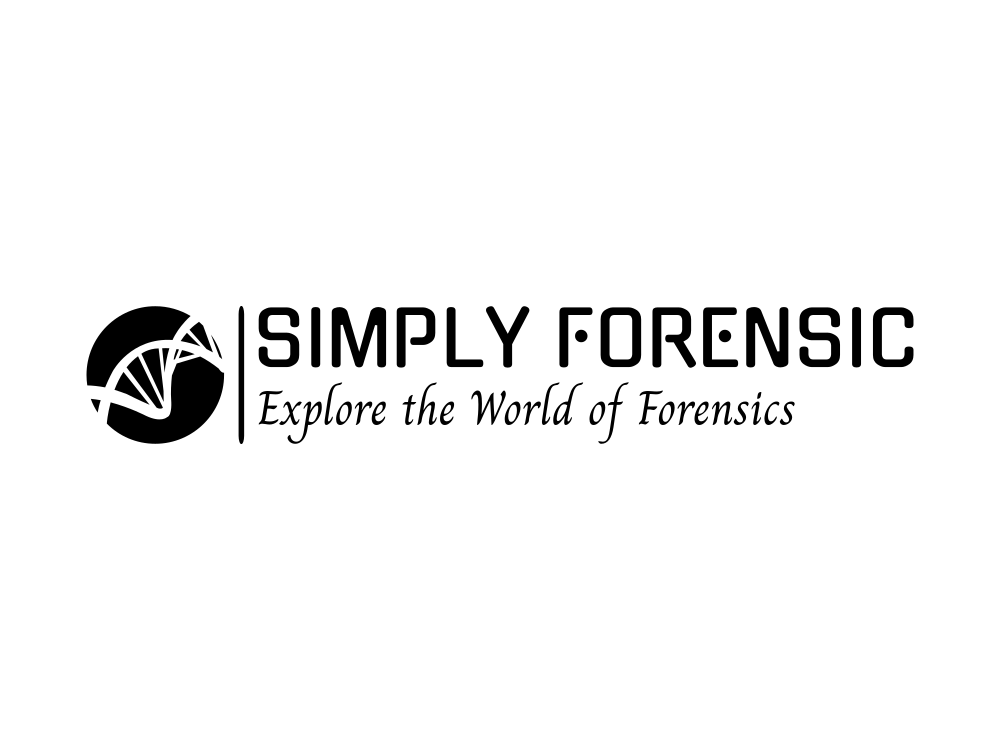Introduction
Forensic Nursing is a specialized discipline that combines the fields of nursing, law enforcement, and criminal justice. It involves working with patients who are victims of violence, trauma, or abuse and providing care to individuals who have been accused of crimes. Unlike traditional nursing, forensic nurses use their unique skills and knowledge to collect evidence
 A person who aligns themselves with the patient, providing emotional support, referral services for follow-up, contact with social services, legal assistance, arrangements for transportation, presence in court, and for other needs. Read Full Definition for the needs of their patients.
A person who aligns themselves with the patient, providing emotional support, referral services for follow-up, contact with social services, legal assistance, arrangements for transportation, presence in court, and for other needs. Read Full Definition for the needs of their patients.
In addition to providing medical care and evidence collection, forensic nurses also provide emotional support and advocacy to their patients. They work closely with law enforcement professionals and other healthcare providers to ensure victims receive the best care and support.
Forensic nursing can play a critical role in supporting victims of crime and helping to ensure that justice is served. In addition, by providing compassionate care and support and gathering and documenting evidence, forensic nurses can help to provide a voice for those who may otherwise feel silenced or marginalized. For those interested in pursuing a career in forensic nursing, there are a range of training and educational opportunities available, as well as opportunities to work in various settings, including hospitals, community health centers, and correctional facilities.
The Role of Forensic Nurses
Forensic nurses are highly skilled professionals who work in various settings to care for patients who have experienced traumatic events. These events may include sexual assault, domestic violence, child abuse, and neglect. Forensic nurses provide not only medical care but also collect necessary evidence that can be used in legal proceedings. They work closely with law enforcement agencies and other healthcare providers to ensure victims receive comprehensive care and support.
In addition to providing care to patients, forensic nurses may also be involved in research and education. For example, they may conduct better studies to understand traumatic events’ impact on patients and develop new treatment approaches. Forensic nurses may also educate other healthcare providers on recognizing and responding to signs of abuse or neglect.
Forensic nursing is a demanding and rewarding field that requires high skill and compassion. Forensic nurses play a critical role in helping victims of crime and trauma heal and move forward.
Skills Required for Forensic Nursing
Forensic nursing is a highly specialized and complex field that requires a unique set of skills. In order to be an effective forensic nurse, individuals must possess excellent communication, assessment, and critical thinking skills, as well as an in-depth understanding of forensic science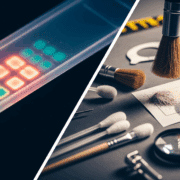
In addition to these core competencies, forensic nurses must also be able to work collaboratively with other healthcare professionals, including physicians, psychologists, and social workers. This is because forensic nursing often involves dealing with victims of trauma and abuse, which can be emotionally challenging and require a multidisciplinary approach. Forensic nurses must also be able to communicate effectively with law enforcement and legal professionals, as they may be called upon to provide expert testimony in court.
Given the complex and demanding nature of the field, forensic nurses must be committed to ongoing professional development and education. This may include attending seminars, workshops, and continuing education courses in order to stay up-to-date with the latest advances in forensic science and healthcare practices. Ultimately, forensic nursing requires a combination of technical expertise, critical thinking skills, and compassion in order to provide the best possible care to patients and their families.
Importance of Forensic Nursing
Forensic nursing is a vital component of both the healthcare and legal systems. These highly skilled professionals are trained to provide objective, unbiased evidence to support legal proceedings. In addition to their technical expertise, forensic nurses offer compassionate care and emotional support to their patients. They work tirelessly to ensure patients receive the medical care and support they need to recover from traumatic experiences.
Forensic nursing is also critical in helping to prosecute offenders and bring justice to victims of crimes. Forensic nurses play a crucial role in building cases against perpetrators by documenting injuries and collecting evidence. In addition, they work closely with law enforcement and other legal professionals to ensure justice is served.
Furthermore, forensic nursing is an ever-evolving field that requires continuous education and training. These professionals must stay up-to-date on the latest medical and legal developments to effectively serve their patients and the legal system. Forensic nurses must be prepared to adapt and incorporate new tools and techniques into their practice as technology advances.
In short, forensic nursing is a complex and critical field that requires a unique combination of technical expertise, compassion, and dedication. These professionals play a vital role in both the healthcare and legal systems, ensuring that victims of crimes receive the care and justice they deserve.
Statistics and Real-Life Examples
Forensic nursing is an essential field that has a significant impact on both individuals and communities. The International Association of Forensic Nurses has conducted research showing that forensic nursing has a wide range of positive effects on society. For example, it has been proven to decrease the incidence of violence, increase the identification and documentation of injuries, and increase the prosecution of offenders.
In addition to these impressive outcomes, many real-life examples of forensic nursing in action demonstrate its importance. For instance, forensic evidence is often used in court proceedings to provide crucial information that helps solve crimes. Forensic nurses are also highly involved in the identification and treatment of victims of human trafficking, which is a serious issue affecting many people around the world. Finally, forensic nurses are also called upon to provide support and care to mass disaster victims, a critical service requiring specialized expertise and training.
There are several famous real-life cases where forensic nursing played a critical role. Here are a few examples:
- The O.J. Simpson trial: During the trial, forensic nurses testified to the injuries sustained by Simpson’s ex-wife, Nicole Brown Simpson, and her friend, Ron Goldman. The nurses’ forensic evidence helped build the case against Simpson.
- The Boston Marathon bombing: In the aftermath of the bombing, forensic nurses were on the front lines providing care to victims and collecting evidence. Their work helped to identify the suspects and bring them to justice.
- The Cleveland Strangler case: Forensic nurses played a critical role in investigating and prosecuting Anthony Sowell, who was convicted of murdering 11 women. The nurses provided testimony regarding injuries sustained by the victims and evidence collected during the investigation.
These are just a few examples of the vital work that forensic nurses do. By providing compassionate care and collecting objective evidence, they help to ensure that justice is served and that victims receive the support they need to heal and move forward.
As shown, forensic nursing is a precious field that plays a vital role in society. It is not only instrumental in preventing violence and bringing offenders to justice, but it also provides essential care and support to some of the most vulnerable members of our communities.
Future Career Opportunities and Resources
Forensic nursing is a growing field that offers a wide range of career opportunities. Some of the potential career paths for forensic nurses include sexual assault nurse examiner, forensic psychiatric nurse, and forensic nurse death investigator. In addition, specialized certifications are available in forensic nursing, such as Sexual Assault Nurse Examiner (SANE) and Forensic Nurse Certified (FNC). Resources for those interested in learning more about forensic nursing or pursuing a career include the International Association of Forensic Nurses and the American Forensic Nurses.
Forensic nursing is a growing field that offers a wide range of career opportunities. Forensic nurses play an essential role in the criminal justice system by providing specialized medical care and expert testimony to aid in investigating and prosecuting crimes. Whether working in a hospital, clinic, or field, forensic nurses are equipped to handle complex cases requiring unique skills.
Some potential career paths for forensic nurses include sexual assault nurse examiner, forensic psychiatric nurse, and forensic nurse death investigator. Sexual assault nurse examiners are responsible for providing medical care and collecting evidence from victims of sexual assault. Forensic psychiatric nurses work with individuals with mental illnesses who may be involved in the legal system. Forensic nurse death investigators help to determine the cause of deathThe cause of death refers to the specific injury, disease, or underlying condition that directly leads to an individual's demise. It is a critical determination made by medical professionals, such as Medical Examiners or Coroners, Read Full Definition in cases such as homicides, suicides, and accidental deaths.
Forensic nursing is a specialized field that offers a variety of subspecialties. Here are some of the subspecialties within forensic nursing, along with their job responsibilities and qualifications:
Forensic Nurse Examiner (FNE)
FNEs are specialized nurses who perform forensic evaluations of individuals who have been victims of violence or abuse. They collect evidence, provide medical care, and testify in court. FNEs require specialized training in forensic science, evidence collection, and legal proceedings.
Sexual Assault Nurse Examiner (SANE)
SANEs are specially trained nurses who care for individuals who have experienced sexual assault or abuse. They conduct forensic examinations, collect evidence, and provide emotional support and counseling to victims. SANEs require specialized training in forensic science, evidence collection, and trauma-informed care.
Forensic Nurse Death Investigator (NDI) or Nurse Coroner
NDIs are nurses who investigate deaths that occur under unusual or suspicious circumstances. They work closely with law enforcement agencies, collect evidence, and provide testimony in court. NDIs require specialized training in forensic science, evidence collection, and legal proceedings.
Forensic Psychiatric Nurse
Forensic psychiatric nurses provide mental health care to individuals involved in the criminal justice system. They assess and treat mental health issues, provide counseling and support, and work with law enforcement agencies and other healthcare team members. Forensic psychiatric nurses require specialized training in forensic science, mental health issues, and legal proceedings.
Forensic Clinical Nurse Specialist
Forensic clinical nurse specialists are experts in a specific area of forensic nursing, such as sexual assault or child abuse. They provide education and training to other healthcare professionals, conduct research, and advocate for victims of violence. In addition, forensic clinical nurse specialists require specialized training in forensic science, education and training methodologies, and legal proceedings.
Legal Nurse Consultant
Legal nurse consultants provide expertise in legal cases related to healthcare. They review medical records, provide expert testimony, and consult with attorneys and other legal professionals. Legal nurse consultants require specialized training in legal proceedings, healthcare regulations, and medical recordkeeping.
Forensic Gerontology Specialist
Forensic gerontology specialists specialize in caring for elderly individuals who have been victims of abuse or neglect. They provide medical care, conduct forensic evaluations, and work with law enforcement agencies and other healthcare team members. Forensic gerontology specialists require specialized training in geriatric care, forensic science, and legal proceedings.
Correctional Nurse
Correctional nurses provide medical care to incarcerated individuals in jails or prisons. They assess and treat medical conditions, provide counseling and support, and work with correctional officers and other healthcare team members. In addition, correctional nurses require specialized training in correctional health care, security protocols, and legal proceedings.
SWAT Team Nursing
SWAT team nurses are trained to provide medical care to law enforcement officers and civilians during high-risk situations, such as hostage or armed standoffs. They work closely with law enforcement agencies and other healthcare team members to provide immediate medical care and support. SWAT team nurses require specialized training in emergency medical care, security protocols, and legal proceedings.
Overall, forensic nursing offers a variety of career opportunities for nurses with specialized training and expertise. Whether working in a hospital, clinic, or field, forensic nurses are equipped to handle complex cases requiring unique skills.
Resources:
Resources for those interested in learning more about forensic nursing or pursuing a career include the International Association of Forensic Nurses and the American Forensic Nurses. These organizations provide networking opportunities, training, and education to help nurses stay up-to-date on the latest developments in the field and advance their careers.
Conclusion
Forensic nursing is an important and rapidly growing field of nursing that combines healthcare and legal processes. Forensic nurses play a critical role in providing care to trauma, violence, and abuse victims and in supporting the legal system through evidence-based practices. With specialized training and unique skills, forensic nurses are essential in ensuring that victims receive the care and support they need and in promoting justice for all.




